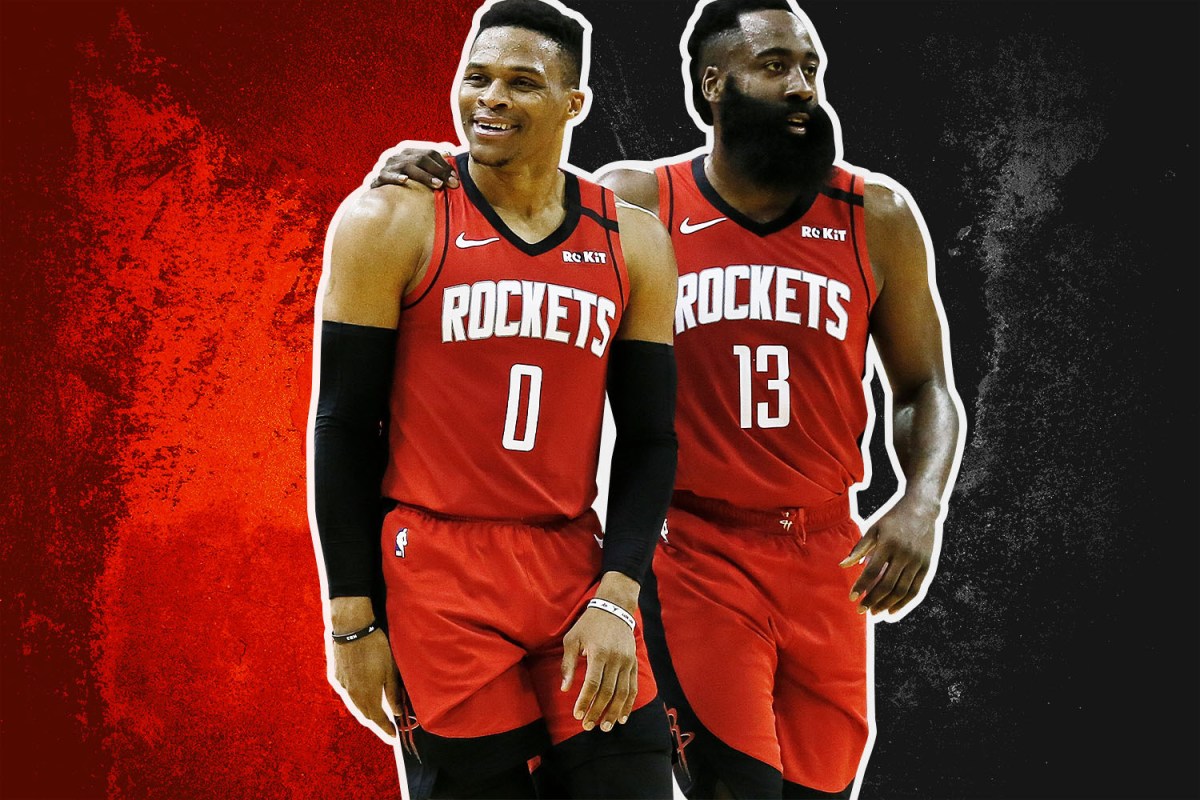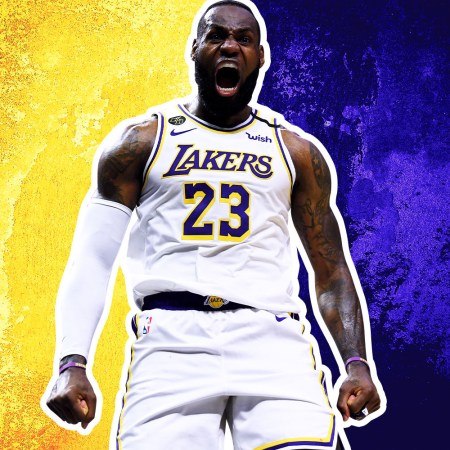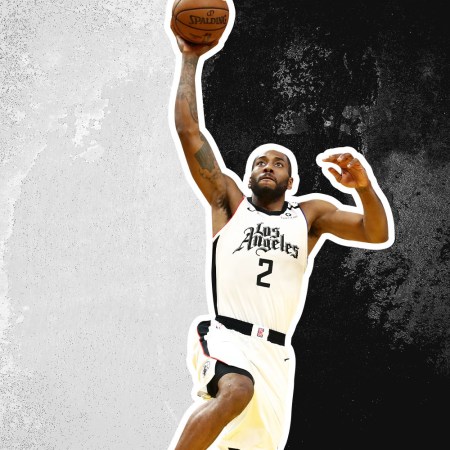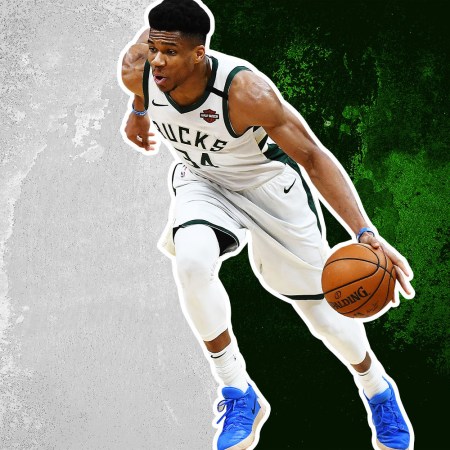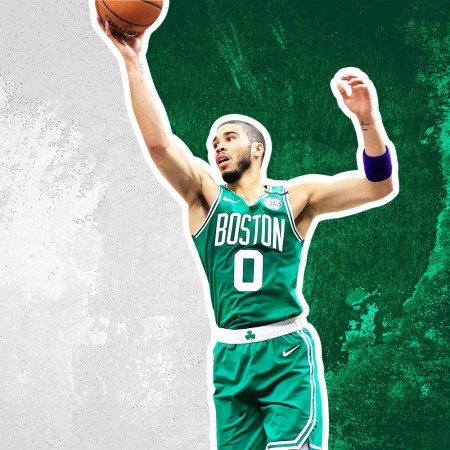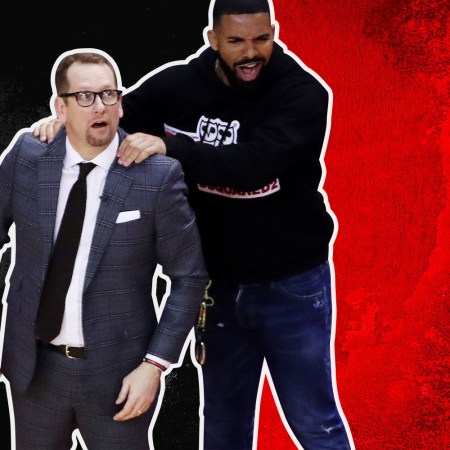Over the next three weeks, we’ll be preparing for the NBA’s long-awaited restart by attempting to answer the single most important question facing every franchise that will be present and accounted for in Orlando. This is 22 Questions.
The Houston Rockets are at war. This time, though, it’s not with the basketball purists who rail against the radically icy McKinsey-ass offense that general manager Daryl Morey has created. Or against the concept of very tall people, which Houston spits at with their novel miniature lineups. Or even against the rock-dumb misconception that Russell Westbrook and James Harden aren’t the kind of players who win titles. Instead, the Rockets are struggling with themselves, torn between a roster and front office and coach who are ready to win and the owner standing in their way.
Although Houston looks like a Shangri-La of spreadsheets and the quest for some form of universal hoops truth, this outward facade masks an internal roiling sea. In the years after Tilman Fertitta — the scion of a famous Texas mafia family and the mastermind behind Bubba Gump Shrimp and other culinary meccas — bought the team in the fall of 2017, the Rockets have been consistently elite, almost in spite of themselves. On the court, the Rockets have won a superb 69.3 percent of their games under Fertitta’s ownership, the second best rate in the league. They were arguably the NBA’s best team in 2018, before Chris Paul injured his hamstring in the Western Conference Finals and the team missed 27 straight threes in Game 7 because to live is to suffer.
Since then, the Rockets have curiously tightened their pursestrings, despite the fact that they were on the doorstep of a Finals appearance. It feels weird to say that a billionaire has no money, but Tillman Fertitta has relatively no money. Although Fertitta claims that he’s definitely not a broke boy and that it’s a “fluke” that the Rockets have made a string of team-weakening moves to duck under luxury tax the last two years, his thriftiness — read: stinginess — is obvious under the tiniest bit of scrutiny. For starters, Fertitta paid $2.2 billion for the team when he only had about $300 million on hand, selling bonds and assuming debt to cover the rest. I mean, who hasn’t overspent their budget by nearly $1.9 billion? Billionaires, they’re just like us!
Recently, the destitute Fertitta became even destituter; shockingly, when a pandemic has the country in its grips, people aren’t really in the mood to go to a Rainforest Cafe. In March, Fertitta furloughed 45,000 employees — as a favor! — and borrowed $300 million at 13-percent interest to keep his businesses afloat. Accordingly, it’s hard to imagine that a miserly, money-bleeding Fertitta will spend the team’s mid-level exception in free agency, since doing so would risk incurring the luxury tax. Of the last 17 champions, 12 have stomached the luxury tax — and the 2017 Warriors only managed to duck it because the salary cap increased by $24 million that year. Simply, you can’t win a title without a lot of good players, and you can only have a lot of good players if you pay them. Fertitta almost certainly knows this; it’s doubtful he cares.
In this light, every recent Rockets’ transaction can be traced back to Fertitta’s diktat to save money. Outside of James Harden and PJ Tucker, that 2017-2018 team has been pared down and stripped apart by Fertitta’s cheapness. The bench now is a mishmash of minimum-salary reclamation projects and veteran castaways plucked from waivers. By definition, these players are limited — if they had rich, diverse skill sets, the Rockets wouldn’t be able to afford them.
But Morey and head coach Mike D’Antoni have built an environment in Houston where those limitations can be overlooked. Harden and Russell Westbrook are so good and so prolific that they alone establish a baseline level of high-end offensive production. The Rockets have removed all excess or redundant responsibilities, ensuring that any long-limbed fringe NBAer can thrive in Houston as long he shoots reasonably well and tries reasonably hard. As a result, the Rockets’ iso-heavy small-ball is equal parts idealism and cynicism. The Rockets simplify the game and allow unheralded players to flourish, but their system was created because most of their players can’t handle offensive responsibilities beyond standing in place.
Nevertheless, this year’s Rockets are the truest manifestation of Moreyball yet. After they swapped starting center Clint Capela for the 6’7 Robert Covington, their shot selection became even more bimodal, with 84.5% of their field-goal attempts coming either at the rim or from deep, per Cleaning the Glass. Capela may have been considered a foundational piece for the Rockets as recently as 2018, but he was rendered obsolete once Harden realized that he didn’t need a screen to beat defenders. No longer carrying any true offensive utility besides scavenging for dump-offs and putbacks, Capela became vestigial, his interior defense not worth sacrificing the spacing that a player like Covington would provide in his place.
The Rockets’ piety to small-ball shunts the other team’s big men out of the paint, clearing space for Harden and Westbrook to abuse. On paper, the logic behind the Rockets’ strategy is totally sound — if basketball games were decided by the expected value of a team’s shot attempts, the Rockets would be unbeatable. However, the concern with the Rockets’ new system isn’t about its efficacy or philosophy, but its sustainability. This is physically grueling basketball. Westbrook and Harden must create offense from scratch while Tucker and Covington are at a permanent size disadvantage. Moreover, the Rockets are so intransigently devoted to their style that every marginal slippage deeply resounds. The effects of fatigue — Harden missing a handful of step-backs he usually makes, Westbrook not having the burst to get that extra foot closer to the rim, Tucker boxing out a second too late — could be the difference between the Rockets flattening the rest of the league or losing in the first round.
In Disney World, the Rockets will be free from a lot of basketball’s uncontrollable variables: They’ll be at full-strength and well-rested. There won’t be any home-court advantage. They won’t have travel across the country — or, as Harden does it, gather-step across the country. The Rockets should never lose in a vacuum and this bubble is as close to that environment as they’ll ever get. At certain points in the season, Westbrook and Harden each looked like the NBA’s best guard. If they reach that level simultaneously, Houston can break up the Bucks-Lakers-Clippers triopoly.
This year is not only potentially Houston’s best chance for a ring — it may be their last. For the Rockets, each successive year going forward will get harder. With Harden and Westbrook on super-max contracts through 2023, the Rockets won’t have much — if any — roster flexibility until their superstar backcourt comes off the books. Additionally, no team has a more barren crop of young talent. Isaiah Hartenstein, an nth-string backup big who has played a grand total of 266 minutes this year, is the only player on the roster who was actually drafted by the franchise, while Danuel House is the closest thing they have to a promising prospect, despite being 27-years-old and … Danuel House. And without control of their own first-round pick until 2022, the Rockets don’t even have easy paths of adding young talent to offset their core’s inevitable decline. Fortunately, Harden and Westbrook are still solidly in their prime and seem likely to maintain their performance through the end of their contracts, but they’ve already quite literally begun to slow down over the years, according to NBA.com’s player tracking data.
Although Morey has worked minor miracles in creating such a strong team on a budget, his moves have carried a significant opportunity cost. Morey was correct to go all-in around Harden, but he’s traded draft picks profligately, compelled by forces outside of his control. In the last two years, the Rockets have traded control of six first-round picks (four outright, two swapped) and De’Anthony Melton, a 21-year-old point guard who just had a breakout season in Memphis. Morey’s haul: tempered decay. Morey punted the team’s future to reinforce the roster after Fertitta refused to resign wings Trevor Ariza and Luc Richard Mbah a Moute in 2018, but the Rockets’ record has gotten progressively worse since their 65-win peak two years ago. Rather than augment the team’s roster, Morey has had to scramble to replace what’s been lost; it’s the best he could’ve done.
This is a truly talented, revolutionary team with the best backcourt in the world, but it’s also old, shallow and doomed. Sooner or later, a team will adopt the principles of these Rockets and win a title — Milwaukee has begun to experiment with playing Giannis Antetokounmpo at center and outscored opponents by 21.7 points per 100 possessions while doing so, according to Cleaning the Glass. When this happens, Morey and D’Antoni and Harden and Westbrook will be hailed as visionaries who ushered in a new way of playing and understanding basketball. But they probably won’t be champions — the only justice will be that Fertitta won’t be, either.
The Charge will help you move better, think clearer and stay in the game longer. Subscribe to our wellness newsletter today.
